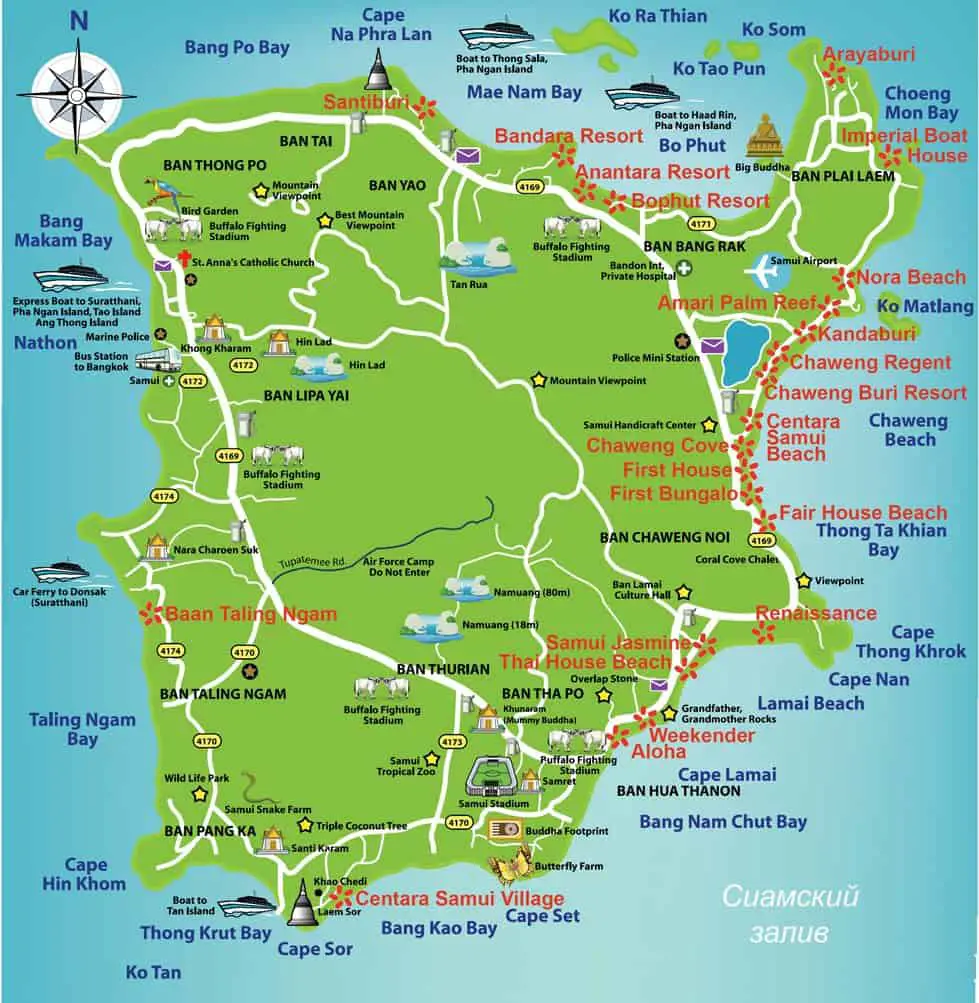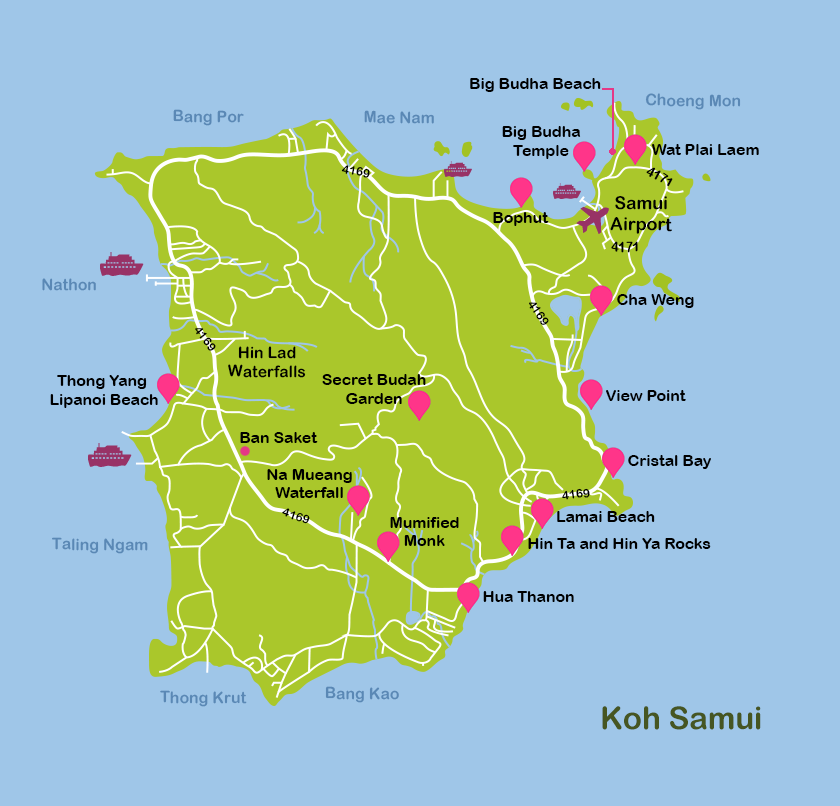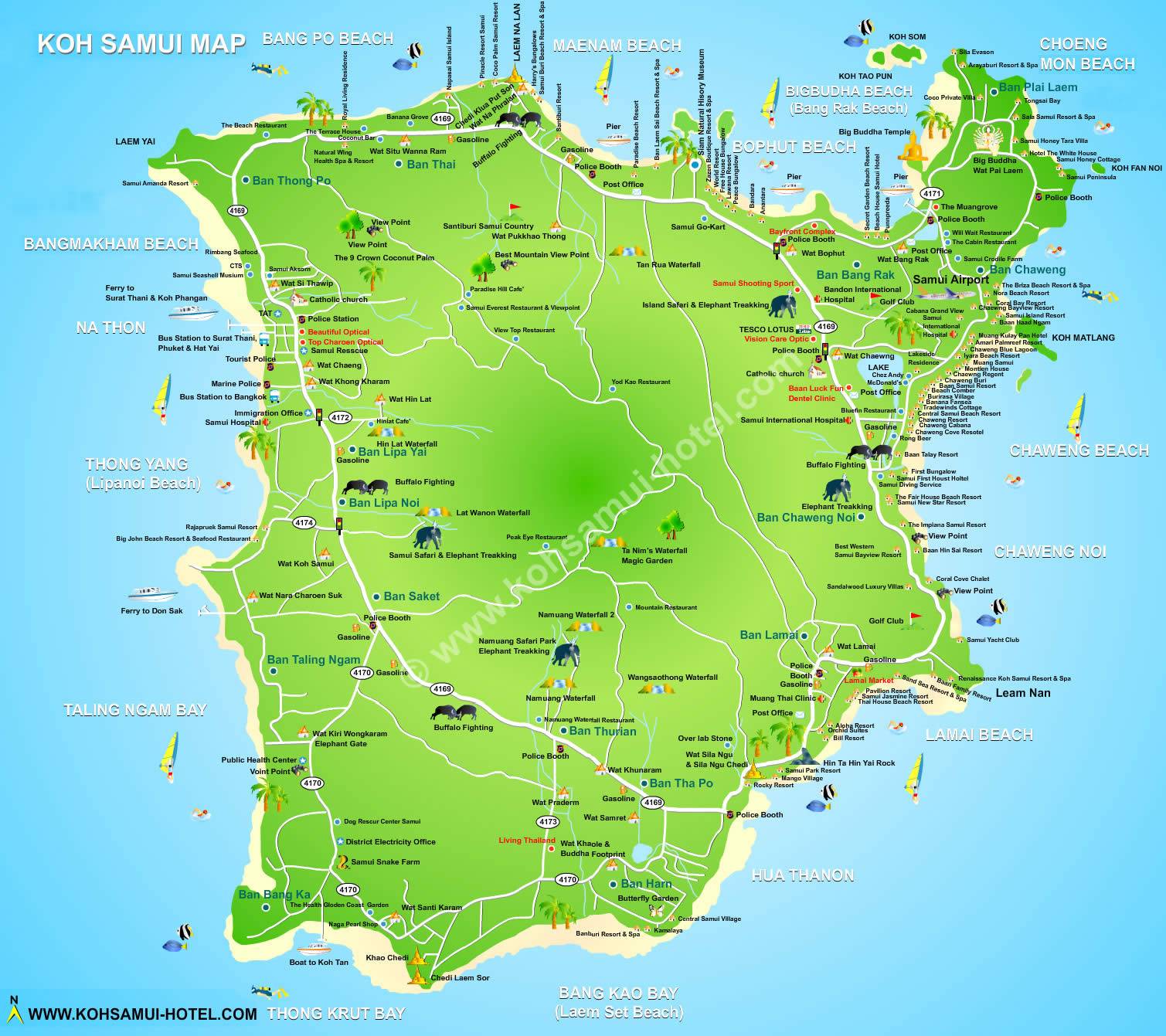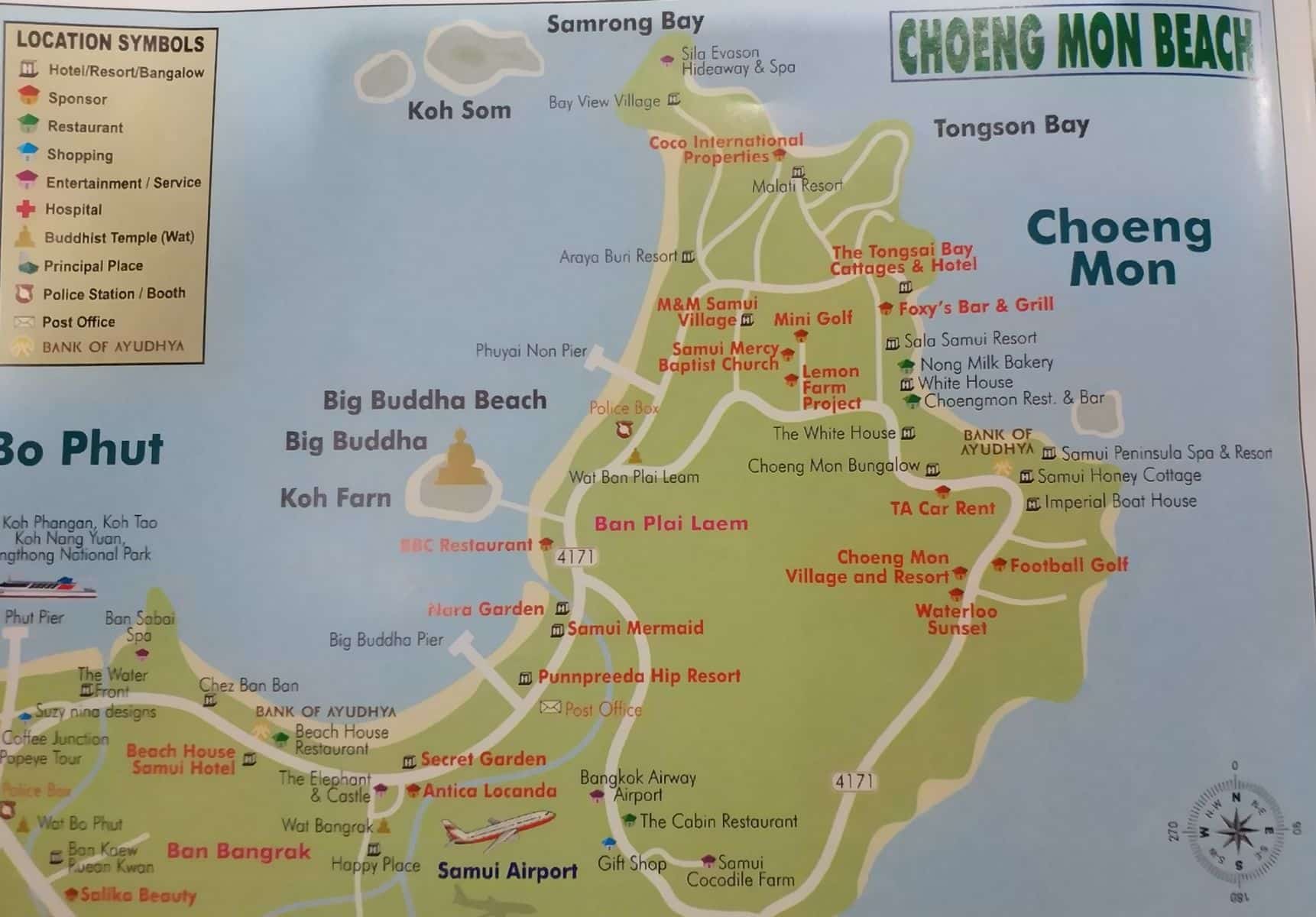Navigating Paradise: A Comprehensive Guide to Koh Samui’s Map
Related Articles: Navigating Paradise: A Comprehensive Guide to Koh Samui’s Map
Introduction
With enthusiasm, let’s navigate through the intriguing topic related to Navigating Paradise: A Comprehensive Guide to Koh Samui’s Map. Let’s weave interesting information and offer fresh perspectives to the readers.
Table of Content
Navigating Paradise: A Comprehensive Guide to Koh Samui’s Map

Koh Samui, Thailand’s second-largest island, boasts a breathtaking tapestry of pristine beaches, lush jungles, and captivating cultural experiences. This tropical gem, renowned for its diverse offerings, can be easily explored with the aid of a reliable map. Understanding the layout of Koh Samui is essential for maximizing your island adventure, ensuring a smooth and fulfilling journey.
Understanding Koh Samui’s Topography
Koh Samui’s map reveals a captivating landscape. The island’s central region is dominated by a mountainous terrain, with the highest peak, Khao Pom, reaching 635 meters. This mountainous heart is surrounded by a ring of coastal plains, dotted with picturesque beaches and vibrant fishing villages.
Key Geographical Features
- Northern Coast: This region is home to the popular tourist hubs of Chaweng and Lamai, known for their vibrant nightlife, bustling markets, and stunning beaches.
- Western Coast: Characterized by quieter beaches and serene landscapes, the western coast is ideal for those seeking tranquility and relaxation.
- Southern Coast: The southern coast offers a mix of secluded beaches, lush jungle trails, and authentic Thai experiences.
- Eastern Coast: This side of the island features the iconic Big Buddha statue, offering breathtaking views of the surrounding landscape.
Essential Landmarks and Attractions
Chaweng Beach: The island’s most famous beach, Chaweng is a bustling hub with white sands, crystal-clear waters, and an abundance of restaurants, bars, and shops.
Lamai Beach: A close second to Chaweng, Lamai offers a more relaxed atmosphere and is renowned for its captivating sunsets.
Big Buddha Temple: A prominent landmark on the eastern coast, the Big Buddha statue offers panoramic views of the island and is a significant religious site.
Fisherman’s Village: Located on the northern coast, Fisherman’s Village is a charming area with traditional shops, restaurants, and a vibrant evening market.
Nathon Pier: The island’s main port, Nathon Pier is the gateway for ferries and speedboats connecting Koh Samui to other islands.
Ang Thong Marine Park: A stunning archipelago of islands, Ang Thong Marine Park is a paradise for snorkeling, kayaking, and exploring pristine beaches.
Exploring Koh Samui’s Map: A Guide to Transportation
Koh Samui offers a variety of transportation options to suit different needs and budgets.
- Songthaews: These brightly colored pick-up trucks are the island’s most common form of public transport. They operate on fixed routes and are a cost-effective way to get around.
- Taxis: Taxis are readily available and offer a convenient way to travel, although they are more expensive than songthaews.
- Motorbikes: Renting a motorbike is a popular option for independent travelers, allowing you to explore the island at your own pace.
- Cars: Car rentals are available, but navigating the island’s narrow roads can be challenging, especially for unfamiliar drivers.
- Ferries and Speedboats: These are used for travel to neighboring islands like Koh Tao and Koh Phangan.
Planning Your Koh Samui Itinerary with the Map
- Identify Your Interests: Do you prefer bustling beaches, tranquil retreats, or cultural experiences? Your interests will guide your itinerary and map exploration.
- Choose Your Accommodation: Koh Samui offers a wide range of accommodation options, from luxurious resorts to budget-friendly guesthouses. The map will help you select a location that suits your needs.
- Plan Your Activities: Whether you’re interested in snorkeling, hiking, or exploring local markets, the map will help you identify and plan your activities.
- Factor in Travel Time: Consider the distances between different attractions and factor in travel time to create a realistic itinerary.
FAQs: Decoding Koh Samui’s Map
Q: What is the best time to visit Koh Samui?
A: Koh Samui enjoys a tropical climate with warm temperatures year-round. The best time to visit is during the dry season, from November to April, when the weather is sunny and dry.
Q: How can I get around Koh Samui?
A: Songthaews, taxis, motorbikes, and cars are all available for transportation on the island. The map will help you identify the most convenient options for your specific needs.
Q: What are some must-see attractions on Koh Samui?
A: Chaweng Beach, Lamai Beach, Big Buddha Temple, Fisherman’s Village, and Ang Thong Marine Park are among the island’s most popular attractions.
Q: What are some local customs to be aware of?
A: Thailand is a Buddhist country, and it is important to dress modestly when visiting temples and other religious sites. It is also customary to remove your shoes before entering a temple.
Tips for Navigating Koh Samui’s Map
- Download a map app: Many apps like Google Maps or Maps.me offer detailed maps of Koh Samui, including offline capabilities.
- Purchase a physical map: A physical map can be helpful for planning your itinerary and navigating unfamiliar areas.
- Ask for local advice: Don’t hesitate to ask locals for recommendations on places to visit, eat, and stay.
Conclusion: Embracing the Enchanting Tapestry of Koh Samui
Koh Samui’s map is more than just a navigational tool; it is a gateway to a world of captivating experiences. By understanding the island’s topography, key landmarks, and transportation options, you can create a personalized itinerary that embraces the island’s unique charm. Whether you seek relaxation, adventure, or cultural immersion, Koh Samui’s map will guide you towards a truly unforgettable journey.








Closure
Thus, we hope this article has provided valuable insights into Navigating Paradise: A Comprehensive Guide to Koh Samui’s Map. We thank you for taking the time to read this article. See you in our next article!